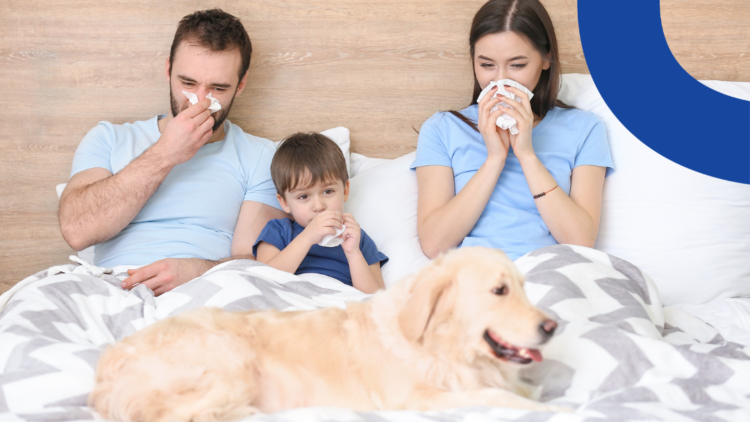Autumn coronavirus epidemic appears to be waning

– The number of hospital patients has remained fairly constant, and the number has not increased anymore. It is expected that hospital patient numbers will now start to decline. Those who have been admitted to hospital have been elderly, and they have had severe underlying diseases, explains Silvia Grönroos-Pada, Chief Physician of Infectious Diseases, about the situation.
Influenza epidemic not started yet – get the vaccine as soon as possible
– The influenza epidemic has not started yet, which means that now is a very good time to take the flu vaccine. RSV is also not seen much yet. RSV is one of the most common causes of respiratory infections, and can cause serious illness, especially in babies and the elderly. These epidemics will probably only start properly at the very end of the year, explains Grönroos-Pada.
On the other hand, there are plenty of other influenza viruses, but so far no norovirus has been detected. On the other hand, quite a lot of A-streptococcus has been detected. A-streptococcus usually causes a sore throat (pharyngitis).
Coronavirus is comparable to influenza
Coronavirus vaccines are effective in preventing a serious form of the disease, which is why corona can be treated like, for example, influenza. The coronavirus causes mild symptoms or an asymptomatic disease for most people, but for at-risk groups, in particular, it also causes a more severe form of the disease, as with influenza.
Coronavirus is no longer commonly tested for and there are no special restrictions associated with its treatment. Tests intended for home use can be made if desired, and face masks can be used in public places if desired, but there is no general recommendation for their use.
– In hospitals and other healthcare units, it is important to try to prevent the spread of the coronavirus, which is why those with respiratory symptoms are tested when admitted to hospital. Those infected are treated in the ward with precautions, i.e., in isolation for the duration of the contagiousness, stresses Grönroos-Pada.
Stay home when sick – if you feel unwell, contact your healthcare provider
Regardless of whether your symptoms are caused by corona or another infection, treatment is given according to the symptoms themselves, for example with rest, liquids and anti-inflammatory drugs.
After getting sick, you can return to normal everyday life when the fever has gone and the other symptoms are decreasing. Usually, this is 3-5 days after the onset of symptoms. However, it is not recommended to meet those belonging to at-risk groups until 5 days have passed since the onset of symptoms.
If your health deteriorates, contact the treatment need assessment number on 06 218 9000 or the medical helpline on 116 117.
– In particular, those in at-risk groups may benefit from coronavirus medicines. That’s why it’s good to take a test to know which virus it is. The doctor will assess if there is a reason to start medication. Medication can also come into question for influenza, says Grönroos-Pada.
Wear a face mask if you have respiratory symptoms in healthcare units
If you wish, you can wear a face mask, for example, in places where there are many people close to each other. You should also keep a suitable distance from others, if possible.
– The face mask can be used when doing business in healthcare units. The use of a face mask is recommended if you have to deal with healthcare services while having respiratory symptoms. It is recommended to avoid unnecessary visits to wards or units where there is a respiratory virus epidemic, advises Grönroos-Pada.
Members of staff wear face masks when treating patients with respiratory infections and in some units also when treating asymptomatic patients in certain situations.
You can also effectively reduce the spread of viruses and the risk of infection to yourself and your loved ones by taking care of good hand hygiene. Remember to cough or sneeze into a disposable tissue or your sleeve.
Read more about vaccines:
General coronavirus information pages: https://thl.fi/en/web/infectious-diseases-and-vaccinations/diseases-and-disease-control/vaccine-preventable-diseases/coronavirus-sars-cov-2